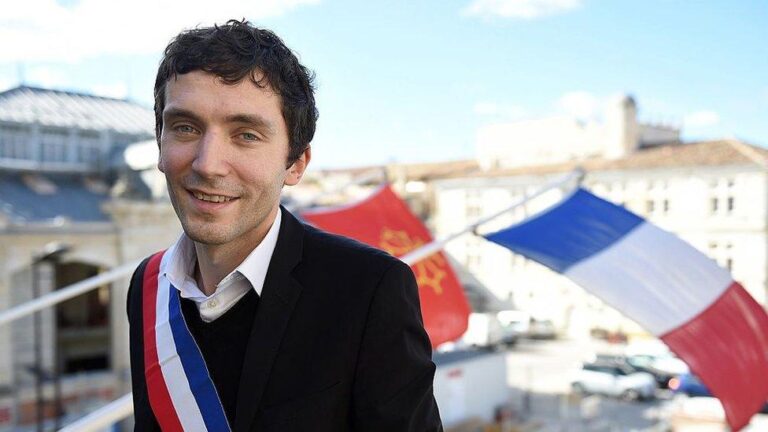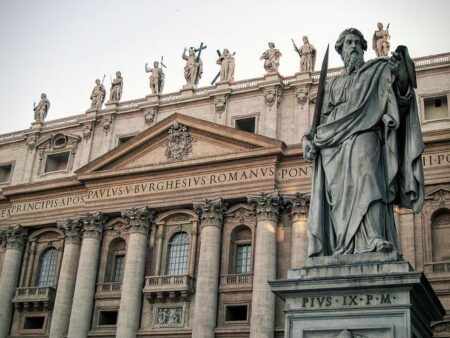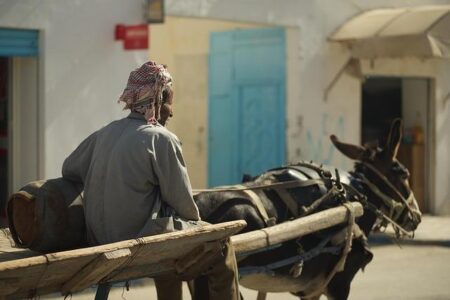Hundreds of mayors across France have mounted a coordinated protest by displaying the Palestinian flag on their town halls, directly challenging the government’s stance on the ongoing Israeli-Palestinian conflict. This unprecedented act of defiance highlights growing local opposition to national policies and signals a deepening divide within French political and public opinion. The demonstrations have sparked intense debate over freedom of expression, diplomatic sensitivities, and France’s role in the Middle East peace process.
Mayors Across France Unite in Palestine Flag Protest Challenging Government Policy
In an unprecedented display of political dissent, numerous mayors from towns and cities across France have raised the Palestinian flag on municipal buildings, directly challenging the national government’s stance on Middle Eastern policy. This coordinated action reflects growing frustration among local leaders, who argue that the government’s approach fails to adequately represent the sentiments of their constituents. The movement has been marked by a wave of solidarity, drawing attention to calls for increased diplomatic efforts and humanitarian recognition regarding the Palestinian cause.
Key factors driving the protest include:
- Local leaders’ belief in the importance of symbolic acts to influence national debate.
- Widespread public support within several communities for Palestinian rights.
- Frustration over what is seen as a lack of government action to address ongoing conflicts.
| Region | Number of Participating Mayors | Flag Raised Since |
|---|---|---|
| ĂŽle-de-France | 12 | April 2024 |
| Occitanie | 9 | March 2024 |
| Provence-Alpes-CĂ´te d’Azur | 7 | April 2024 |
Examining the Political and Social Implications of the Mayoral Rebellion
The recent wave of protests, marked by mayors across France displaying the Palestine flag, signifies a bold challenge to the nation’s political order. This visual act of dissent not only underscores the growing discontent with governmental policies but also highlights the intersection of local governance with international solidarity movements. Politically, the rebellion strains the relationship between central authorities and regional leaders, revealing fractures in the unity traditionally expected within France’s administrative framework. Such defiance raises important questions about decentralization, the limits of political expression for elected officials, and the balancing act between domestic governance and global humanitarian concerns.
Socially, the demonstration has ignited intense debates across communities, mobilizing activists, critics, and ordinary citizens alike. The symbolism of the Palestine flag resonates deeply with segments of the population concerned with global justice, while simultaneously provoking backlash from others who view the act as divisive or inappropriate. This polarization is encapsulated in the following table, illustrating key societal responses:
| Community Response | Percentage | Key Concerns |
|---|---|---|
| Supportive | 45% | Human rights advocacy, solidarity with Palestine |
| Oppositional | 35% | Political neutrality, national unity |
| Neutral / Undecided | 20% | Need for more information, ambivalence |
- Implications for local governance: heightened scrutiny of mayoral autonomy and the role of regional leaders in international issues.
- Potential government responses: increased regulation or sanctions targeting symbolic acts that challenge national policy.
- Broader societal impact: intensification of political dialogue concerning France’s stance on global conflicts and immigrant communities.
Recommendations for Government Dialogue and Addressing Local Leadership Concerns
To effectively address the rising tensions between local leadership and the central government, it is imperative to initiate an open and transparent dialogue that acknowledges the mayors’ concerns without undermining the government’s policies. Authorities should consider establishing dedicated forums for direct communication, allowing municipal representatives to voice their grievances related to international solidarity expressions and local governance challenges. Ensuring that these platforms foster mutual respect and understanding will be crucial in preventing further escalations like the recent protests involving the Palestinian flag.
Additionally, the government could implement the following strategic measures to regain trust and support from local officials:
- Regular consultation sessions to co-develop policies that align national priorities with local sensitivities.
- Support programs focusing on empowering municipalities with resources to manage international solidarity within their communities.
- Crisis response teams designed to quickly address potential conflicts arising from local political expressions.
| Proposed Initiative | Expected Outcome | ||||||||
|---|---|---|---|---|---|---|---|---|---|
| Local-Government Policy Workshops | Enhanced collaboration and policy alignment | ||||||||
| Conflict Mediation Teams | Rapid resolution of disputes | ||||||||
| Resource Allocation for Local Solidarity Events | Reduced tensions and increased local autonomy |
| Proposed Initiative | Expected Outcome |
|---|---|
| Local-Government Policy Workshops | Enhanced collaboration and policy alignment |
| Conflict Mediation Teams | Rapid resolution of disputes |
| Resource Allocation for Local Solidarity Events | Reduced tensions and increased local autonomy |
If you want, I can also help you with any additional edits or formatting for the rest of the section.
To Wrap It Up
As the dispute unfolds, the wave of protests by mayors across France signals a deepening rift between local authorities and the national government over foreign policy and freedom of expression. With the Palestine flag now a potent symbol in this political standoff, the debate is likely to intensify in the coming weeks, raising critical questions about France’s domestic consensus and its role on the international stage. Observers will be watching closely to see how the government responds to this unprecedented act of municipal defiance.




